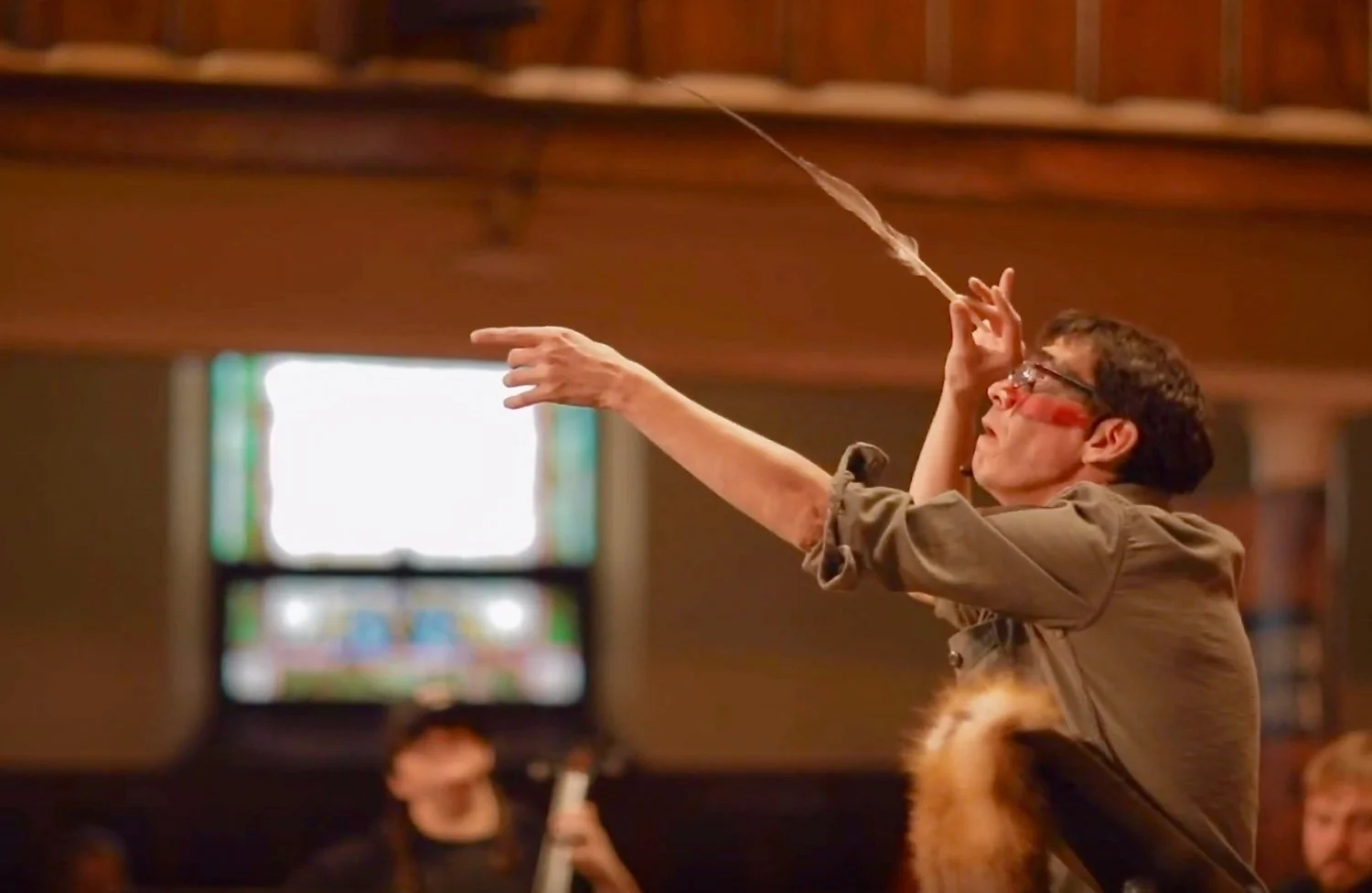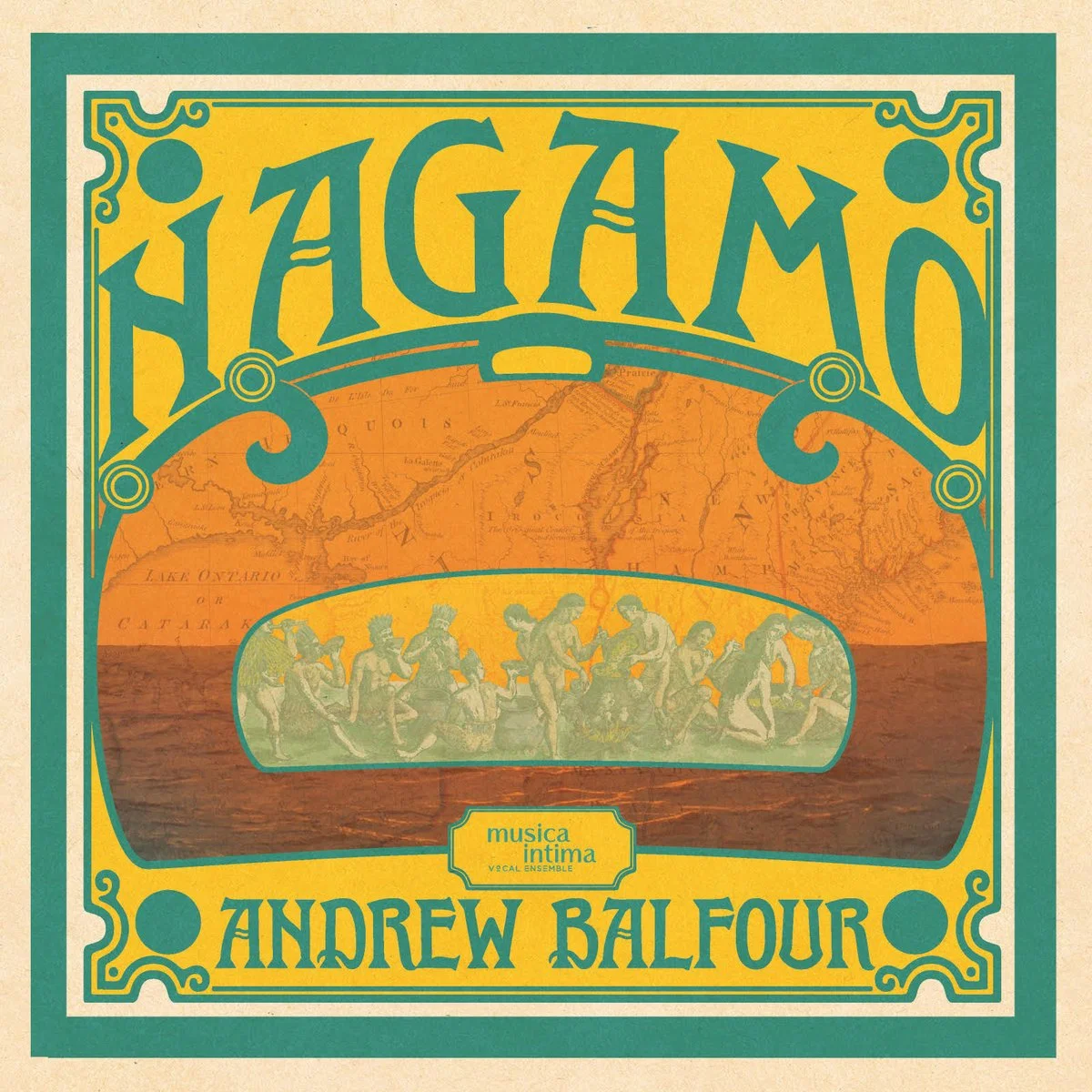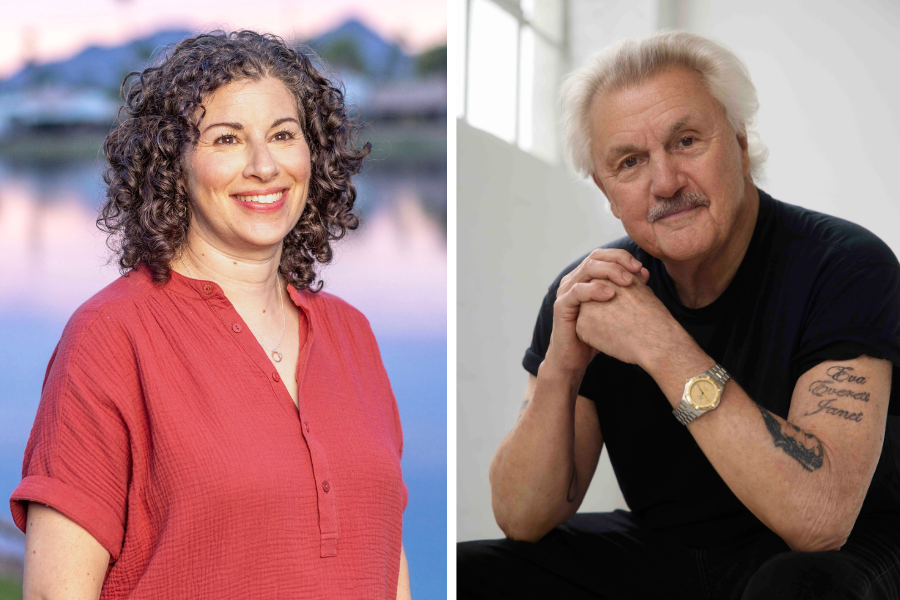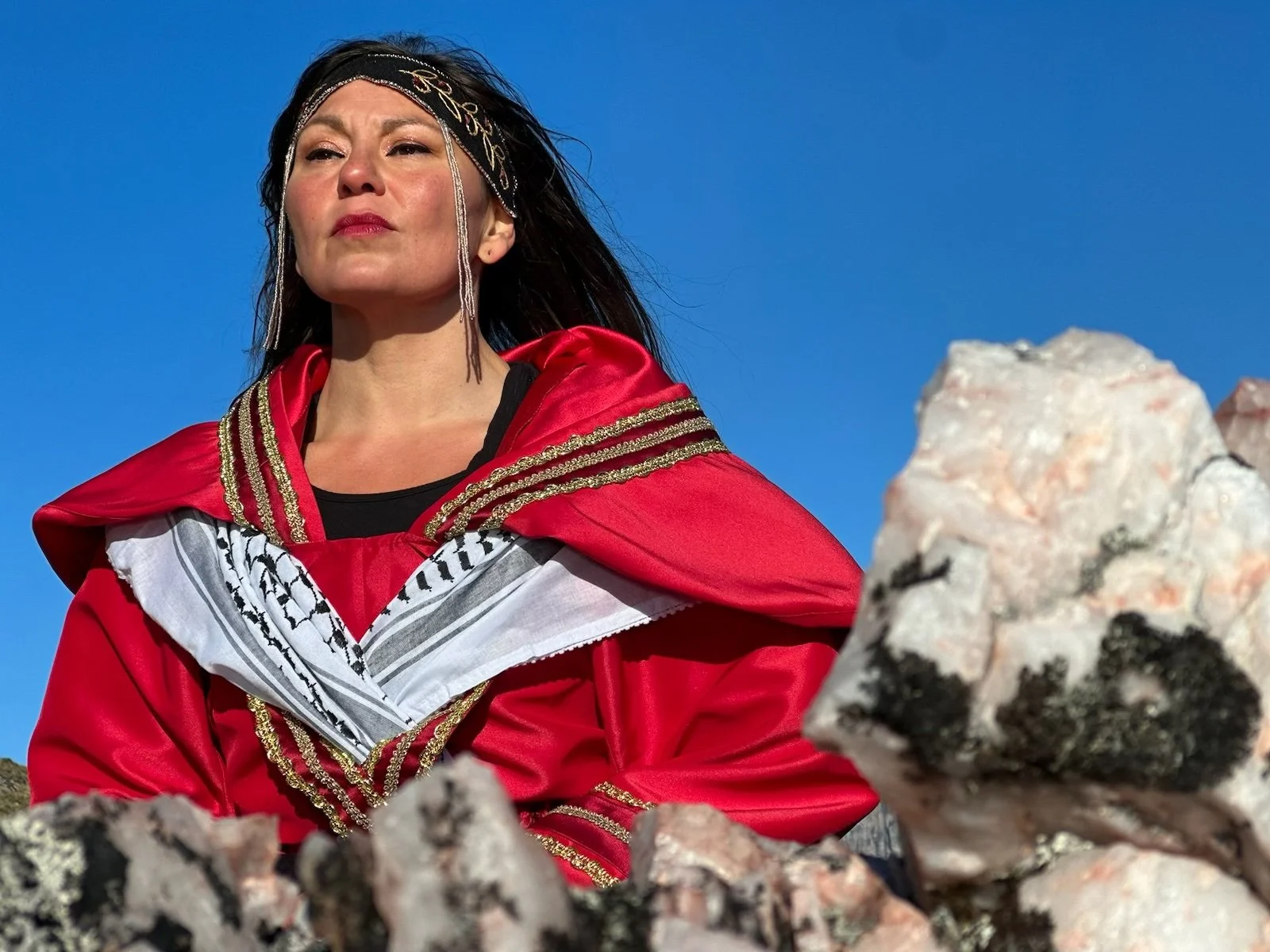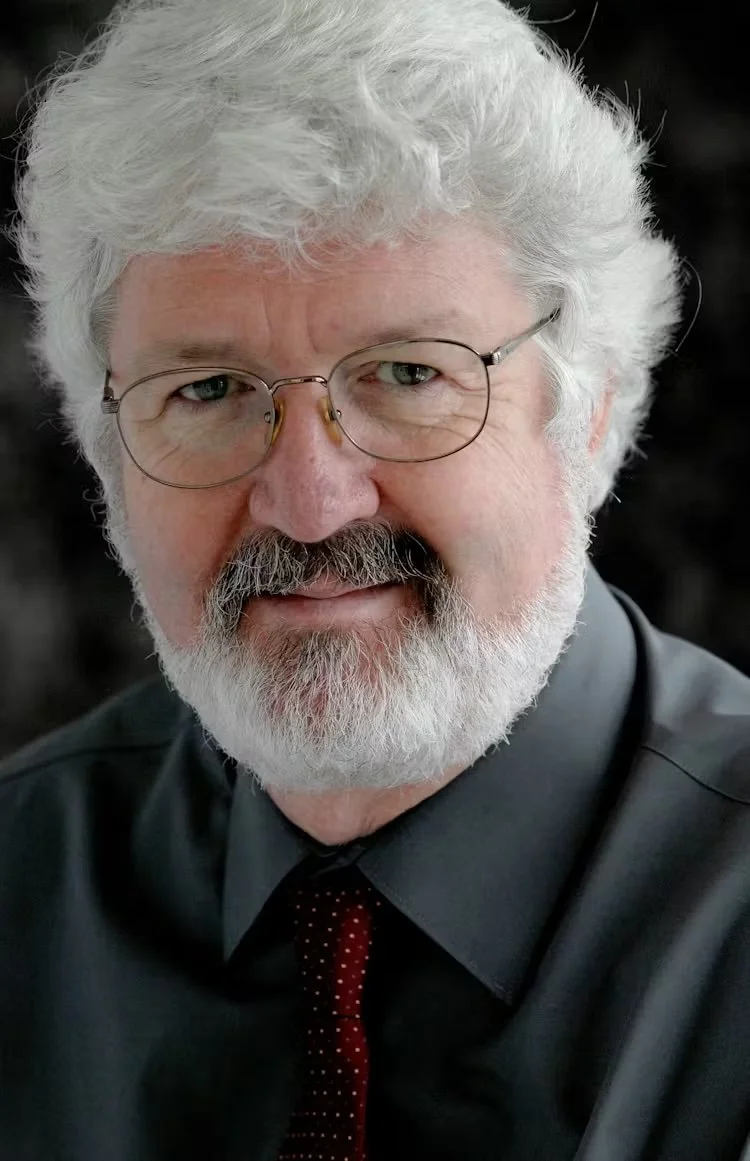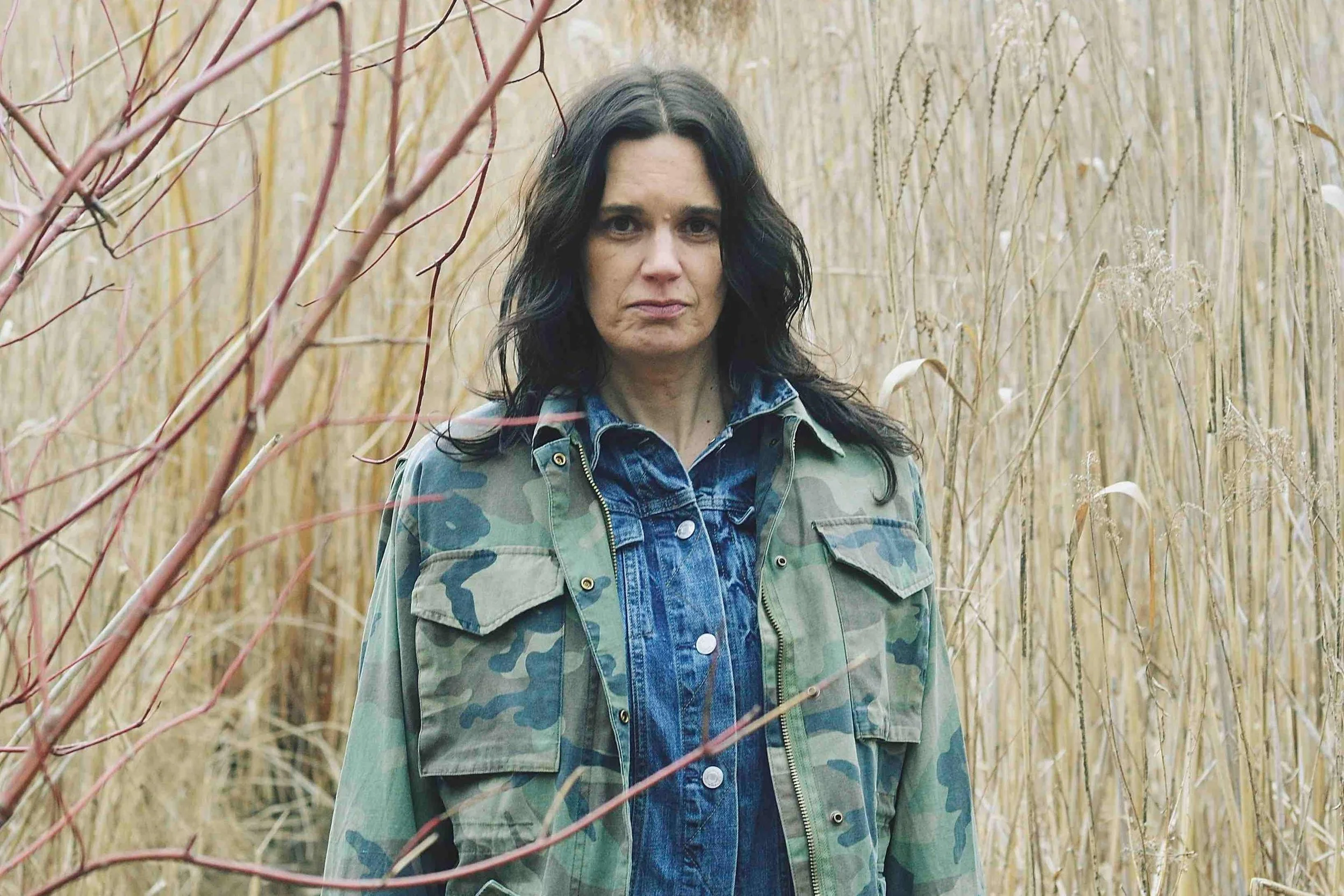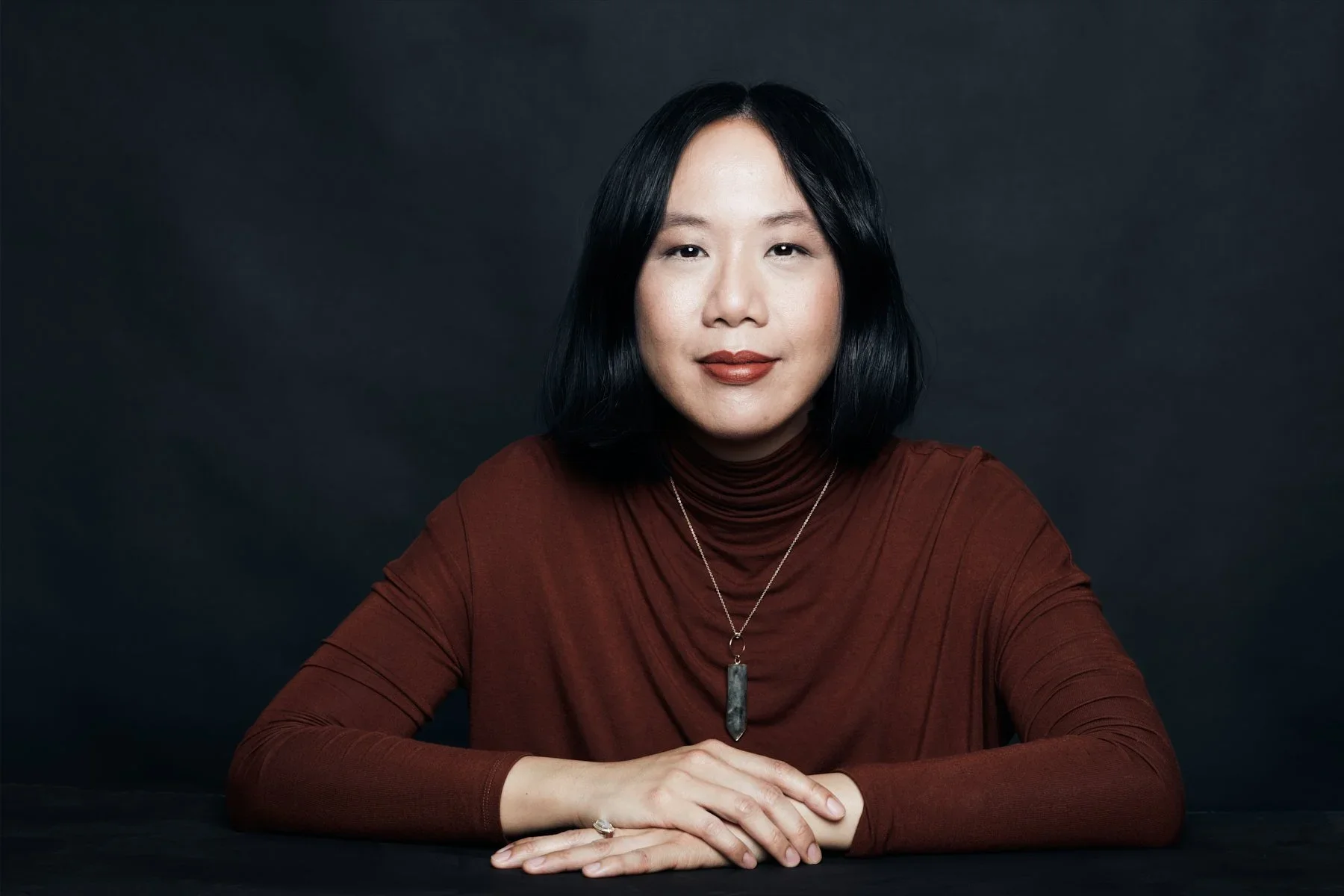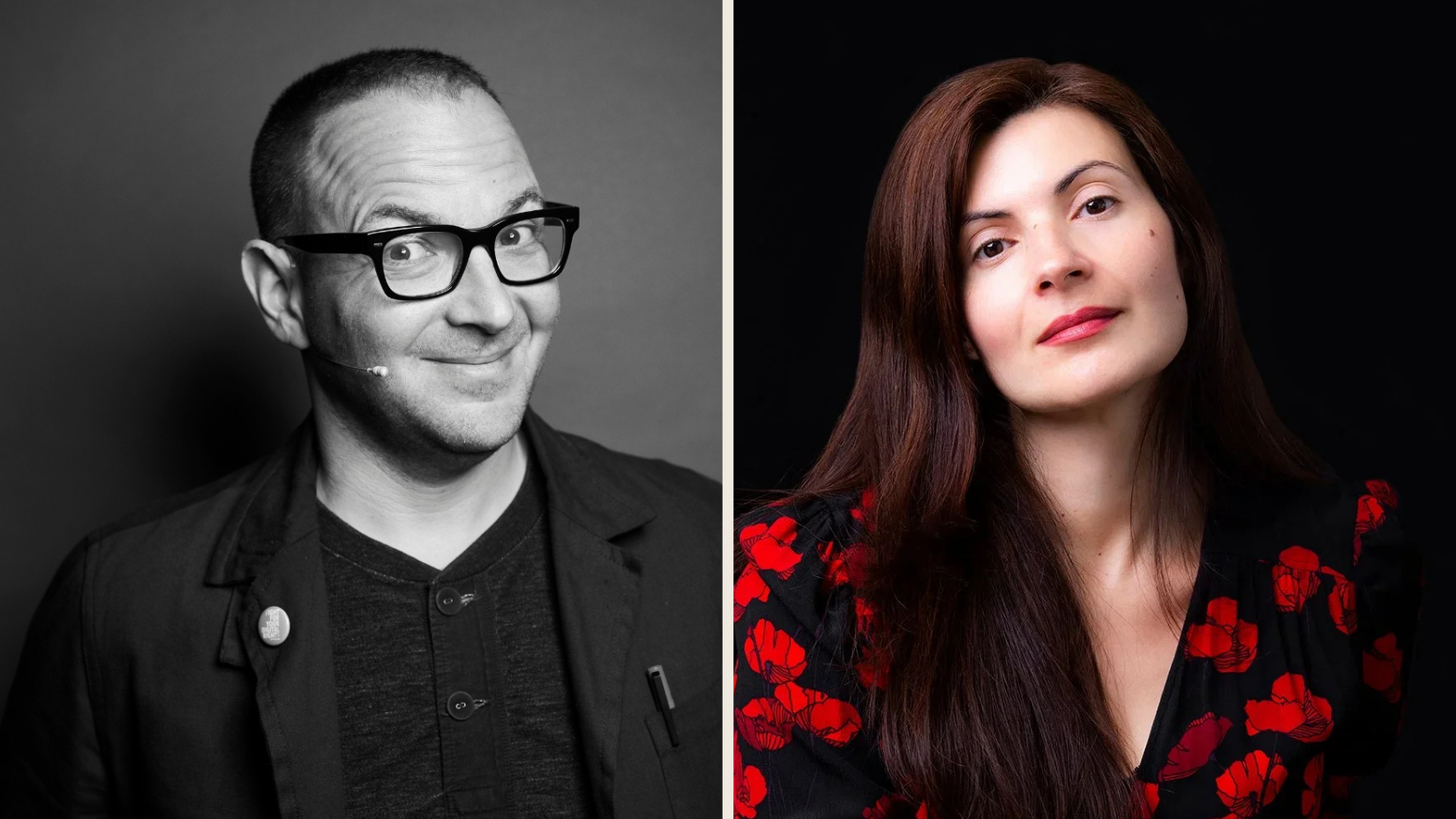Cree composer Andrew Balfour brings Indigenous storytelling to Vancouver Chamber Choir as this season's composer-in-residence
Winnipeg-raised artist conducts his piece Waawaa-Steewak—Cree for “Northern Lights”—in upcoming concert
Andrew Balfour.
Andrew Balfour conducts the Vancouver Chamber Choir in Waawaa-Steewak at St. Andrew’s-Wesley United Church on October 20 at 7:30 pm
LOST ON THE STREETS of Winnipeg, a young Indigenous woman finds her sense of self through culture and language: this is the impactful story Cree composer Andrew Balfour tells in his choral work Waawaa-Steewak, meaning “Northern Lights”.
Balfour, who is the Vancouver Chamber Choir’s composer-in-residence for the 2023-24 season, wrote the first iteration of Waawaa-Steewak in 2006, originally titling it Wa Wa Tey Wak. The Winnipeg-raised artist is introducing a slight name change in time for the piece’s upcoming Vancouver Chamber Choir premiere, to render the title a more accurate representation of the Cree term for Northern Lights.
The name of the piece foreshadows the striking listening experience it promises. If choral song could paint colour, Waawaa-Steewak would leave the grand arches of the St. Andrew’s-Wesley United Church brimming with brushstrokes of neon green and electric violet.
“I think any Canadian knows the awesomeness of how beautiful the night sky can be. I’ve always been captivated by the Northern Lights as a child,” says Balfour, speaking to Stir from Toronto the week prior to the concert. “But of course, I’m a ’60s scooper, so I wasn’t taught my Indigenous perspective of what the Northern Lights, or Waawaa-steewak, mean. They’re our ancestors dancing. And it’s very sacred to be able to experience that. So I just feel, why not take an experience in nature that I think is probably one of the most awesome, and try to tell a story about that?”
Balfour, who was born in 1967 in the Fisher River Cree Nation near Winnipeg, was removed from his culture during the Sixties Scoop. The term refers to Canada’s child-welfare system forcibly taking Indigenous children from their birth parents to be adopted by white families from the 1960s to the 1980s, encouraging assimilation. In a way, the story of the lost Indigenous woman told in Waawaa-Steewak mirrors Balfour’s own.
“I think I picked a good career, because especially when I was in my late 30s, I was very lost in what I wanted to do,” says Balfour. “I was still coping with my identity as an Indigenous person, and didn’t know my language, and medicines, and cultures. It was a very difficult time, but I got through it through music. So I guess in a lot of ways, my career has been kind of my therapy. It feels good.”
Andrew Balfour.
Currently based in Toronto, Balfour received a 2023 Juno Award nomination for classical album of the year with his project Nagamo (the Cree word for “sings”), which reframes Elizabethan choral music through a Cree-Ojibwe lens. That same throughline of bringing Indigenous perspective to choir pieces carries into his upcoming Vancouver Chamber Choir concert. Balfourn is juggling three roles—composer, conductor, and curator—for the lineup that juxtaposes his contemporary Indigenous work with music from the Renaissance, including Mexican composer Manuel de Sumaya’s De lamentatione Jeremiae, and 1600s Portuguese composer Gerónimo Gonzales’s Lamentación de Jeremías.
Violist Emily Eng plays in between each movement, her string notes acting as the voice of the lost woman. “It’s almost like the viola line is a piece of yarn that’s been stitched or sewn together into the whole fabric of the piece,” notes Balfour. Six Nations of the Grand River artist Cheri Maracle is a featured guest artist, performing traditional songs and moments of spoken narration.
Balfour landed his Vancouver Chamber Choir position through a connection with its artistic director Kari Turunen, who assumed the role in 2019 after founder Jon Washburn stepped down from his 48-season tenure. When Balfour expressed a vision of the Vancouver Chamber Choir singing Indigenous music within a choral setting, the concept resonated with Turunen.
“I think it’s a natural progression for me, even though I live in Toronto, to be able to come out to the West Coast and make some music,” reflects the composer, who visited B.C. often throughout his childhood.
Andrew Balfour’s Nagamo album cover.
“I’ve listened to a lot of music,” Balfour says. “I’m 56 years old, you know, and I’ve been singing since I was six years old. That’s a long time singing music and interacting with different styles. I feel that I have a lifelong love of singing and telling stories.”
Balfour is artistic director of the Winnipeg-based vocal ensemble Dead of Winter, which he founded in 1996. Formerly known as Camerata Nova, the group recently chose to detach itself from the Latin name in order to better reflect their locale—“Winter-peg”, jokes Balfour—and Indigenous perspective.
A primary focus of the ensemble is what Balfour refers to as “concept concerts”. These interdisciplinary explorations of Indigenous culture have most recently taken the form of a Truth and Reconciliation concert series, which includes 2022’s Captive, 2018’s Fallen, and 2017’s Taken.
Ultimately, Balfour aims to serve the community with Dead of Winter’s music.
“I really feel that that’s vital for the arts, is to collaborate—to climb down from our ivory towers of privilege and Eurocentric thinking, and to really connect with the community,” he shares.
While Balfour composes primarily in Cree and Ojibwe, he didn’t start out doing so. He first pursued trumpet-playing in post-secondary school before switching his major to choral conducting—and then dropping out. Nowadays, composing within Indigenous framework is his focus.
“I think what we do is pretty unique,” says Balfour. “And I also hope that it sets the template for other choirs and organizations to work within their community, and find the song-keepers, and the dancers, and the people that really want to work and tell their stories, and give them safe spaces to be able to share their stories. That’s the most important thing. That’s the future of Canada. If the rest of the country can let Indigenous stories be told in a safe space and respect them, I think we can truly heal.”
In the week leading up to the concert, Balfour is flying out to Vancouver, where he’ll get to conduct the Vancouver Chamber Choir in a few rehearsals before the big show. Up until his arrival, the choir is rehearsing under Turunen’s helm.
“It’s been nice this week,” says Balfour. “I’ve been really looking at scores, and listening to music, and thinking about how I want to approach this. You know, I’m mostly a composer, I don’t conduct as much as I used to. But it certainly feels good, especially when you’re conducting the Vancouver Chamber Choir. It’s like driving a Porsche. They’re very, very good. It’ll be a lot of fun.” ![]()


